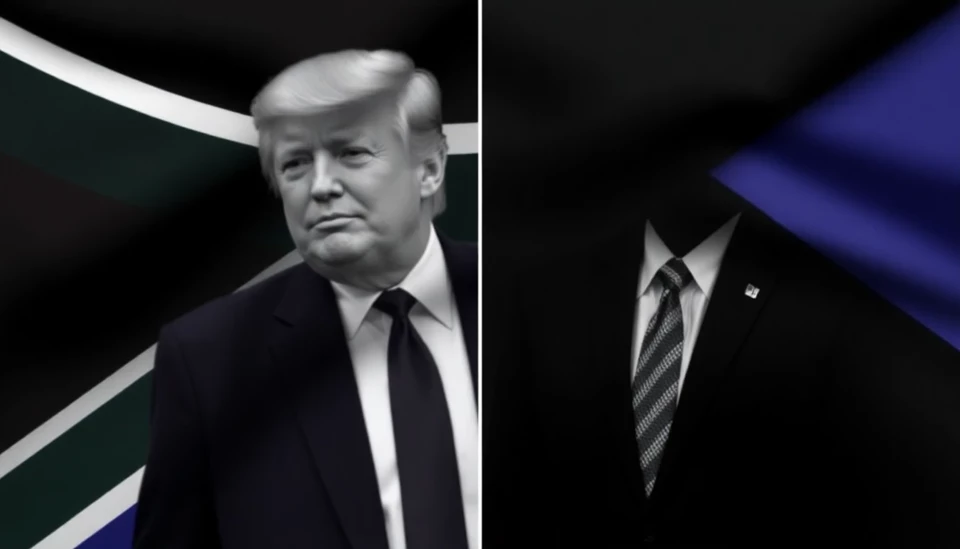
Recent developments concerning the economy under Donald Trump have cast a shadow over South Africa's political and economic landscape. As the world reflects on the uncertainties surrounding the former U.S. President's economic strategies, the implications are particularly notable for South African policymakers who are navigating their own set of challenges in a tumultuous global economy.
The rising concerns about growth, fueled in part by Trump's policies during his presidency, have prompted renewed debates within South Africa regarding how to position the country in a world that is increasingly influenced by American decisions. With Trump’s economic management facing scrutiny, South African leaders find themselves pressured to develop strategies that can mitigate risks arising from global uncertainty.
Trade relations between South Africa and the U.S. have been a pivotal focus. South African officials are particularly concerned about how changes in U.S. economic policy could disrupt trade flows, investment opportunities, and ultimately, growth prospects for the nation's economy. The current apprehensions are compounded by South Africa's own economic hurdles, such as high unemployment rates, stagnant growth, and challenges in fiscal management.
In this context, various stakeholders in South Africa are calling for a reevaluation of existing policies to better align with potential shifts in the global economic landscape. This is seen as a necessary move for ensuring economic resilience in the face of external shocks and uncertainties.
Moreover, the fallout from Trump's policies has reignited discussions about the need for South Africa to diversify its trade partnerships and not remain overly reliant on the U.S. market. Economic experts and analysts suggest that forging stronger ties with other nations could alleviate some of the pressures stemming from any volatile shifts in U.S. economic policy.
The South African government is currently considering several measures aimed at revitalizing its economy, including policies that foster local manufacturing and stimulate job creation. However, the success of these initiatives is invariably tied to the international economic environment, which has been increasingly unpredictable.
As South Africa grapples with these challenges, the impact of Trump's economic decisions continues to be felt in various sectors. The focus now shifts to how effectively the South African government can adapt to this ever-evolving landscape while striving for sustainable economic progress.
In conclusion, South Africa's economic future hangs in the balance as it contemplates how to navigate through a world marked by the uncertainties associated with Trump's legacy. It is crucial for South African leaders to act decisively in reassessing policies that will guidetheir country toward stability and growth in the coming years.
#Trump #SouthAfrica #Economy #PolicyUncertainty #TradeRelations #GlobalEconomy #EconomicGrowth
Author: Laura Mitchell




